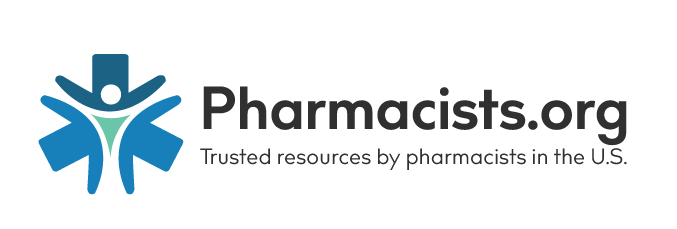Key Points
- One of the most important things you’ll need to become a medical writer is a portfolio. You can get started for free with Medium. You can also write for blogs, trade magazines, and websites in your field.
- Starting your own website, volunteering for a health non-profit, and taking advantages of writing opportunities within your current role are also good places to get started.
- After getting any work, it’s critical to write your best work every time and be responsive to editors. Your professional reputation is what will get you a steady stream of work.
If you’re wanting to become a medical writer, here are 15 things you can do today to get started. I did many of these things when I first got started and built my business from scratch to up to $1,000+ per day.
Table of Contents
1. Start a portfolio for free
It’s the classic Catch-22: how do I get experience if I don’t have experience? The key is to just start writing and putting your work out there. Medium is a great place to do that, and LinkedIn also has a place for you to build your own blog or portfolio of work.
2. Pitch to blogs for products, websites, and magazines in your field
Think about all the companies producing written content in your field. Someone has to write that, so it might as well be you. Use that to generate a list of companies you can then pitch to.
3. Pitch to trade magazines
Along the same lines, a great place to start is for trade magazines in your field. That’s because you can pitch specific topics and focus on your clinical experience to get your foot in the door.
4. Volunteer
There are always great non-profits needing writers, and if you find one in the healthcare area you can get experience while also helping a worthy cause. Grant writing is an ongoing need. You can find opportunities at VolunteerMatch.
5. Write in your current job
Does your current company have an education department? Maybe they write brief clinical updates? Take advantage of the fact you already know people there to get the chance to build a portfolio of work while getting paid your regular salary.
6. Partner with faculty at your local college or university
You can also partner with faculty to write CE, review articles, and other materials that will benefit both of you. Many faculty might already have ongoing relationships with publications that will make it easier for you to get your foot in the door.
7. Start your own website
You can use Google Sites for a free site builder and GoDaddy to connect a custom domain and start your own site for around $1 per month.
8. Be sure your resume screams ‘medical writer’
You need to get a resume put together that positions you as a medical writer, not as a practicing healthcare professional. TopResume can help you do that – they did a great job with mine.
9. Be sure ‘medical writer’ is in your LinkedIn profile
Most recruiters look on LinkedIn for potential candidates, so you need to be sure you will pop up in their search results. Change your title to be sure it includes ‘medical writer.’ That way, when they search ‘medical writer,’ you’ll have a chance of pulling up.
10. Use the job boards well
Search the job boards using terms that are broad. In addition to ‘medical writer,’ try your degree, like ‘MD,’ ‘PharmD,’ etc. That will pull up jobs you might have missed before, including those in medical communications.
You’ll find medical writing jobs in all the major job boards, including LinkedIn, Indeed, GlassDoor, and Monster.
11. Bookmark your favorite companies
Be sure to check back regularly on the careers pages for companies you really like. The job boards all have different algorithms and sometimes they don’t pull up the same results. They might also occasionally miss job postings.
12. Consider a writing fellowship
Some medical communications agencies and drug companies have fellowships, which is a great way to begin your new career.
13. Be willing to take a pay cut initially
If you’re new to medical writing, and you decide to completely make the jump from clinical practice, you are very likely going to have to take a pay cut. Prepare in advance for that.
14. Write your best work, every time
You’re only as good as your last article. Price your work accordingly, but after you agree on a price with the editor you need to ensure you are giving it 100%.
15. Be responsive to editors
Editors have deadlines to meet and they need to know you are there with them to be sure it gets done on time. Respond to emails, revise the draft in a timely manner, and just generally be polite and get to know them. It makes for a much better work environment, is the right thing to do, and also will help you keep getting work.
Bonus Tip: Use AI writers to help you find companies
Put the AI writers to work finding companies that hire medical writers. Not sure how? Check out this video, which is a sneak peek lecture of AI in Medical Writing.

I am a pharmacist, community pharmacy consultant, and medical writer with over 12 years of clinical practice experience in community, outpatient health system, long term care, and academic settings. I am also the founder of PharmCompliance.com, a website dedicated to the success of community pharmacy.
As a pharmacy project manager, I led the implementation of new service lines, assist with ensuring legal and third-party compliance for over 70 retail stores, lead quality improvement and medication safety initiatives, write policies, procedures, and best practices for all our retail sites, and help with optimizing revenue cycle and pharmacy profitability. I have been responsible for DMEPOS and vaccine accreditation through CMS, obtaining new licenses and permits, and implementing a prescription drug kiosk embedded in our physician offices.
As a medical writer, my work has been featured in GoodRx, Pharmacy Times, Drug Topics, Patient Care Online, and in peer-reviewed journals. I have also given presentations on a range of topics, from disease state pharmacotherapy for medical residents to updates on the CDC vaccine storage and handling guidelines for a medical-grade refrigerator and freezer manufacturer. I have written and presented continuing education for CEImpact, FreeCE, AchieveCE, Ascension Health, and the Florida Department of Health.








